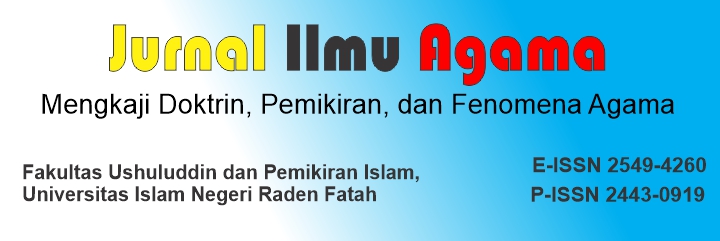ALIRAN KALAM SALAFIYAH
Main Article Content
Abstract
Mu’tazila had reached the power in Abbasiya Dinasty. Mu’tazilah main controversial thought was the notion that Al Quran is a creature. All peoples and scholars were forced to follow the thought. Meanwhile there was a scholar who strongly opposed the notion. He was Imam Ahmad Ibn Hambal. He was often threated, tortured and busted by the ruler. Imam Ahmad Ibn Hambal thought was inspired by the new theological school, Salaf School. Salaf was the theological school following the Imam Ahamad Ibn Hambal thought which was formulated by Imam Ahmad Ibn Taimiyah. As the Asyariyah school, Salaf was the reaction against the Mu’tazilah thought. The paper will discuss the two main scholar of Salafi School namely Imam ibn Hambal and Ibn Taimiyah. It includes their biographies, toughts, and their interpretation on Mutasyabihat, the verses which have no clear on meaning and the Allah’s attributes.
Article Details
Authors who publish with this journal agree to the following terms:
- Authors retain copyright and grant the journal right of first publication with the work simultaneously licensed under a Creative Commons Attribution 4.0 International License that allows others to share the work with an acknowledgement of the work's authorship and initial publication in this journal.
- Authors are able to enter into separate, additional contractual arrangements for the non-exclusive distribution of the journal's published version of the work (e.g., post it to an institutional repository or publish it in a book), with an acknowledgement of its initial publication in this journal.
- Authors are permitted and encouraged to post their work online (e.g., in institutional repositories or on their website) prior to and during the submission process, as it can lead to productive exchanges, as well as earlier and greater citation of published work.
How to Cite
References
Asy Syak’ah, Mustofa Muhammad,( 1994), Islam Tidak Bermazhab, Gema Insani, Jakarta.
Abbad, Sirajudin, (1987), I’tiqad Ahlusunnah Wal-Jama’ah, Pustaka Tarbiyyah, Jakarta.
Dasuki, Hafisz, (1993), Ensiklopedi Islam, Jilid.V cet. 1, Ichtiar Baru Van Hoeve, Jakarta.
Depag RI, (2007), Al-Qur’an dan Terjemahnya, Diponegoro, Bandung.
Fauzi, Ahmad, (tt), Ilmu Kalam (sebuah pengantar), STAIN Press, Cerebon.
Ghazali, Adeng Muhtar, (2003), Perkembangan Ilmu Kalam dari Klasik Hingga Modern, CV Pustaka Setia, Bandung.
Mustopa, (2011), Mazhab-Mazhab Ilmu Kalam, IAIN Publisher, Cerebon.
Mustofa Muhammad Asy Syak’ah, (1994), Islam Tidak Bermazhab, Gema Insani, Jakarta.
Nasir. Sahilun A. (2010) , Pemikiran Kalam (Teology Islam ), Rajawali Pers, Jakarta.
Razak, Abdur dan Anwar, Rosihan, (2006), Ilmu Kalam, Puskata Setia, Bandung. 2006
Saad, Thablawy Mahmud, (1984), At-Tashawwuf fi Turasts Ibn Taimiyah, al-Hai al-Hadis al-Mishriyah al-Ammah li al-Kitab, Mesir.
Yusuf, Abdullah, ( 1993), Pandangan Ulama tentang Ayat-ayat Mutasyabihat, Sinar Baru, Bandung.
Watt, W. Montgomerry, (1990), Kejayaan Islam: Kajian Kritis dari Tokoh Orientalis. Terj. Hartono Hadi Kusumo, Tiara Wacana, Yogyakarta.
W. Montgomerry Watt, Kejayaan Islam: Kajian Kritis dari Tokoh Orientalis. Terj. Hartono Hadi Kusumo, (Yogyakarta: Tiara Wacana, 1990), hal. 61-62
http://id.wikipedia.org/wiki/Salaf, diakses pada tanggal 21 April 2014

